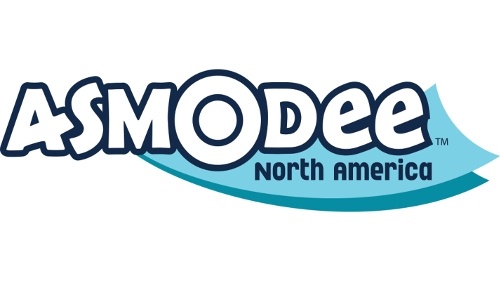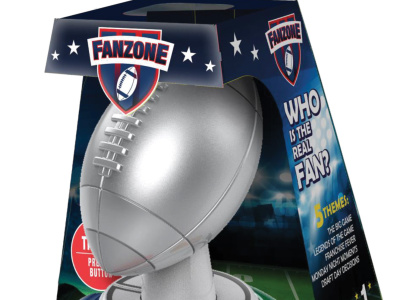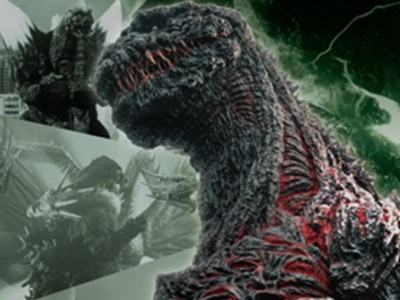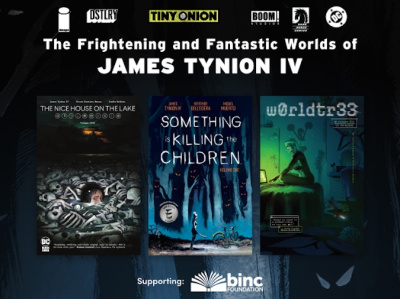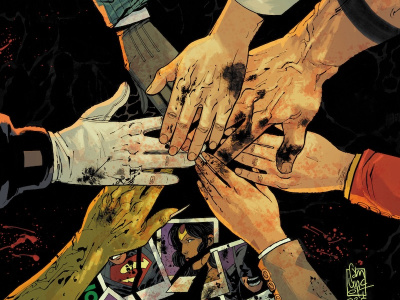Last week, Asmodee announced that in a post-merger consolidation, business operations of Asmodee, Fantasy Flight Games (FFG) and Days of Wonder (DOW) will be consolidated into Asmodee North America (see "Asmodee, Fantasy Flight, Days of Wonder Consolidate"), and that terms of sale to the trade will be changing. ICv2 caught up with new Asmodee NA CEO Christian Petersen to learn more about the specifics of the deal. In Part 1, we discuss branding, marketing investments, organized play, stocking policies, and selling direct to retailers. In Part 2, we discussed the company’s new terms and how they differ by channel, MAP, and online retailing.
ICv2: How will the four different brands (three studios, plus Asmodee NA) be used? Will products continue to be branded with the studios, as Asmodee NA, or both?
Petersen: The publishers, Asmodee Publishing, Days of Wonder, Fantasy Flight Games will continue to operate and be represented under their own identity. They will continue their own independent websites, catalogs, convention presences, OP programs, etc. In other words, the activities and people behind those publishers will largely continue to operate as they have been.
The Asmodee North America unit represents the business-to-business, operative, logistical, administration, and shared-marketing services for the publishers in North America. We are not a consumer-facing brand.
The announcement of the consolidation said that one outcome of the changes would be additional investment in marketing. Is there anything beyond the new Asmodee website that you can share as far as new investments in marketing and communications?
There are several initiatives. We’ve been in the process of recruiting hundreds of contractors around the country to engage in significantly more event-based and demonstration based marketing. For example, we just did a big X-Wing event in the main rotunda at the Mall of America (Minnesota) in connection with the release of the new Star Wars film. This approach will extend to many Asmodee and DOW products, as well as to activity specific to the Spot It! brand (see "Asmodee Acquires 'Spot It!'").
As you mentioned, we are launching a new Asmodee Publishing website soon. The team is dedicating a lot of work to this, and will be generating a lot of ongoing website content providing articles, previews, and other resources for consumers. Based on past experience, we believe this will give a noteworthy boost in interest for the games published under the Asmodee brand.
We’re also contributing financially to a new marketing program in connection with our authorized distributors which we hope will help our communications and support for the specialty retail space.
Overall, across all three publishing brands, we’re making huge increases in marketing investment. This is primarily targeted at consumer marketing and new player acquisition, but we’re also increasing our trade marketing. I’m very hopeful retailers will see positive effects from all these efforts.
Will organized play programs be merged, and if so, when?
FFG’s OP program will continue its current direction, and AsmoPlay will also continue (see "Asmodee's New Organized Play Program"). They will be handled as two separate programs under their respective publishing brands.
In terms of the talent behind the programs, the OP for each brand will be managed by distinct teams (having access to shared internal resources) with know-how in each supported game. We want to ensure that the OP experience is authentic and relevant for the loyal audiences of each game supported by our OP.
You’ve confirmed that logistics will be one of the functions that will be consolidated in Minnesota. Will Days of Wonder and Asmodee games be stocked according to FFG’s policies, or vice versa? Will out-of-stocks for the three lines now be more like FFG’s have been in the past, or like Asmodee and Days of Wonder’s have been in the past?
[Laughing] We seem to touch on inventory policy each time we talk, Milton. We believe that FFG’s inventory levels and our reaction to demand has significantly improved, with the lion’s share of FFG’s 1,500+ SKU catalog being in stock at almost all times.
That said, like the weather, inventory management is local, with idiosyncratic problems related to the story of each product. X-Wing has been a huge success for us, and has pushed the capacity of first one, and now two factories; however, we’ve managed to have most of the core X-Wing SKU’s in stock for large portions of 2015 while growing the line to encapsulate the scope of the new movies. The same is true for many of FFG’s other mainstay products (and new major product like Star Wars: Imperial Assault, Star Wars: Armada, etc).
New product stock is notoriously difficult to predict. For example, the Game of Thrones LCG 2nd Edition Core Set sold out in the first few weeks, even though we produced nearly twice as many as the most recent LCG. Same with the Warhammer Quest Adventure Card Game--we printed a lot, but we simply underestimated demand and have been blown away by the extremely positive gamer reception to that title. On the flip side of the coin, we have been able to keep good supplies of other hot recent products, such as the X-Wing Force Awakens Core Set and Fury of Dracula.
As you know, the difficulty of anticipating new product demand is not unique to the FFG line. In this growth market, new product shortages happen frequently to all publishers. In terms of the Asmodee line, for example, this fall we ran out of both Mysterium and Seven Wonders: Duels in the first week, and we’re moving quickly to get more in stock.
In any stock-keeping business, inventory decisions can have a severe impact on your health. Just as distribution and retail must be careful in this area, we also need to have a balanced approach that will ensure a reasonable overall turn-rate while still serving markets. Obviously, we intend to keep making inventory investments that ensure we keep key core products in stock at most times, such as Ticket to Ride products, Seven Wonders, Dixit, Game of Thrones: The Board Game, X-Wing, Arkham Horror and others.
We’re seeing three distributors on the FFG list that will be eliminated--what about Asmodee, is it eliminating any distributors, and if so, which ones?
The business side of Asmodee, FFG, and DOW are being consolidated into the Asmodee North America business unit, so our distribution choices affect all the lines that we represent. In other words, ACD, Alliance, Southern Hobby, PHD, and GTS will represent hobby distribution for all our lines.
The publisher-to-retailer channel is new, correct?
No, it’s not new. Since the very beginning FFG has serviced retail accounts that wished to purchase direct. So, this represents a continuation of existing services. In most cases, it will make sense for specialty retailers to buy from our authorized distributors, but we’ll serve those retailers that prefer a direct relationship.
On allocated products, how will the allocations be divided between Asmodee-direct-to-retailer and sales through distributor channels?
We do not envision any significant difference in how this has been administered by FFG for years. We aim to be fair and transparent with all parties in allocation situations.
Click here to go to Part 2.

Branding, Marketing Investments, OP, Stocking Policies, and More
Posted by ICv2 on December 29, 2015 @ 4:11 am CT
MORE GAMES
With 'Fanzone: Electronic Football Trivia Game'
July 18, 2025
Ultra PRO will release Fanzone: Electronic Football Trivia Game into retail.
Booster Set Adds King Ghidorah, Gigan, and Spacegodzilla
July 18, 2025
Bushiroad announced a second booster set for Godzilla Card Game.
MORE NEWS
From Tiny Onion, Dynamite, Image, IDW
July 18, 2025
There are four Humble Bundle deals running right now, from Tiny Onion, Dynamite, Image, and IDW.
Debuting Absolute Catwoman and More New Characters
July 18, 2025
The event will deepen the storytelling of the Absolute Universe and bring in new characters, including the first appearance of Absolute Catwoman.



